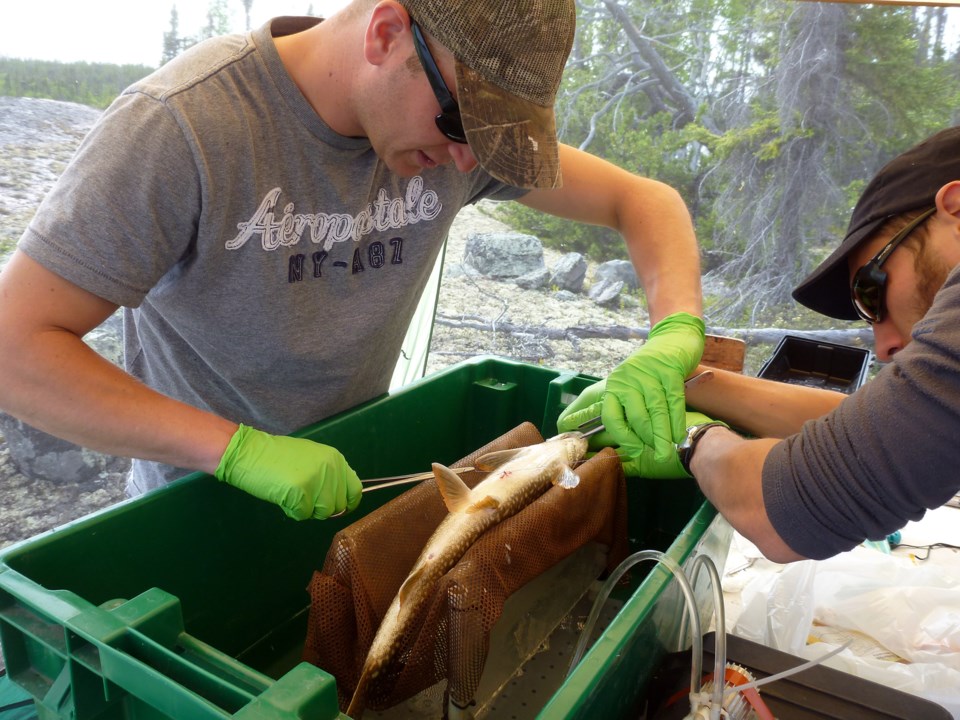THUNDER BAY - If the spring and summer season continue to get longer due to climate change, anglers may be enjoying smaller shore lunches as fish struggle to adapt.
A new study has found that climate change is having an impact on lake trout by changing their behavior, forcing the cold-water species into deeper water for longer periods to look for food during long summers.
“There is some resiliency there,” said Michael Rennie, an assistant professor in the department of biology at Lakehead University and Canada research chair in fresh water ecology and fisheries.
“They are not just going to hang out in warm water and die. They will seek out colder water and tough out the summer.”
The study -- Behavioral response to annual temperature variation alter the dominant energy pathway, growth, and condition of cold-water predator -- was published in the Proceedings of the National Academy of Sciences and is based on research conducted at the International Institute for Sustainable Development Experimental Lakes Area.
Rennie, along with Matthew Guzzo, a PhD candidate at the University of Manitoba, and Paul Blanchfield, a research scientist at Fisheries and Oceans Canada, authored the study based on data collected at the Experimental Lakes over the last 11 years.
“We put it all together to try and get a good handle on how variability in terms of how warm or how cool a given year is impacts the overall behavior and growth of lake trout and how those are linked,” Rennie said.
The study found that lake trout are actually very adaptable and will change their behavior on a yearly basis depending on the length of the seasons.
“What’s really important about this study is it shows that this can vary from one year to the next and that variation is represented in the trout in changes in their growth rate and changes in their body condition,” Rennie said.
During the spring, lake trout will take advantage of cooler temperatures closer to shore where more food resources are available. During the summer, as temperatures increase, lake trout will seek cooler water deeper down, where food resources are reduced.
If a spring and summer are long, the lake trout will spend more time in deeper water and experience reduced weight and weaker body condition, which has researchers concerned, and not because of the size of an angler’s next summer meal.
“I think it has some real implications for thinking about how lake trout will respond to climate change,” Rennie said. “If you have a number of years in a row that are these warm years over and over again, those reduced growth rates are going to have impacts on their ability to reproduce and how able they are to replace themselves and keep up population densities.”
Throughout the 11 years of data that was collected, there was variation between good years and bad years. However, Rennie said in the last 50 years, the trend appears to be pointing toward more bad years on the horizon, which could have a significant impact on fish populations.
“As we extend this study, if we do start to see these sustained years where we’ve got a number of warm springs one after another, that’s when I think we will start to see potential impacts at the population level,” he said. “I think we can expect to see real changes in the population sizes of these fish that have nothing to do with overfishing or anything like that, it will be because of a change in the background climate.”
